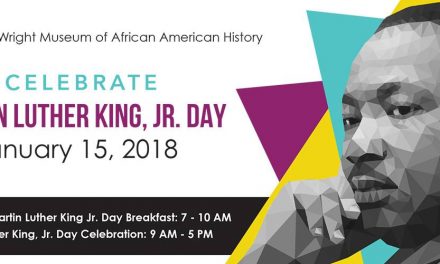This Week on American Black Journal:
FDA approves two groundbreaking new gene therapy treatments for sickle cell disease
The U.S. Food and Drug Administration (FDA) has approved two new gene therapies, Casgevy and Lyfgenia, marking a significant milestone in the treatment of sickle cell disease. The announcement represents a breakthrough for gene therapy, with Casgevy standing out as the first FDA-approved treatment employing CRISPR/Cas9, a cutting-edge genome editing technology. Sickle cell disease, a group of inherited blood disorders affecting over 100,000 Americans, predominantly of African and African American descent, is characterized by a mutation in hemoglobin that distorts red blood cells into a sickle shape, leading to severe pain and organ damage.
Casgevy, a cell-based gene therapy, targets patients ages 12 and older and treats sickle cell disease by increasing the production of fetal hemoglobin (HbF), preventing the sickling of red blood cells. Lyfgenia, the other cell-based gene therapy, uses a gene-therapy derived hemoglobin that mimics normal adult hemoglobin. Both therapies use patients’ own blood stem cells, delivered as a one-time infusion after myeloablative conditioning. Sickle cell disease occurs when an individual inherits two sickle cell genes –one from each parent.
Dr. Melissa Creary, assistant professor in health management policy and global public health at the University of Michigan School of Public Health, talks with host Stephen Henderson about the pros and cons of the new gene-editing therapy. Dr. Creary, who lives with sickle cell disease herself, describes the excitement generated by this unprecedented treatment and how it addresses a population that has been historically neglected from a medical perspective. Henderson and Dr. Creary also discuss the possible barriers to the therapy such as cost, accessibility and the complexity of the treatment.
Northern Michigan Trauma Camp takes alternative approach to helping returning citizens with re-entry
There’s help available for returning citizens – the many thousands who are re-entering society each year after serving time in prison – as they try to adapt and adjust to life on the outside. At a small program held in Northern Michigan last fall called Trauma Camp, returning citizens were able to confer and learn coping skills from counselors. The annual gathering was started in 2020 by Aaron Kinzel, a faculty member in the University of Michigan-Dearborn’s Criminology and Criminal Justice program.
The camp gets support from grants and fundraisers, and there is no cost to the participants. Supporters of the camp include the Michigan Association of Re-Entry Support/Youth Justice Fund and The Michigan Justice Fund. This year, there were fifteen people in attendance. Kinzel brings a well-informed perspective, having served prison time himself before moving into the academic world. He said it’s important to get people who’ve been incarcerated away from the distractions and stress of everyday life, and the idea of a summer retreat came to mind.
One Detroit’s continuing coverage on the challenges of returning citizens joining Michigan’s workforce takes contributor Mario Bueno, who has also served prison time, and senior producer Bill Kubota up north to visit the Trauma Camp, see how it works, and hear from two of its attendees about their stories.
Stay Connected:
Subscribe to Detroit Public Television’s YouTube Channel & Don’t miss American Black Journal on Tuesday at 7:30 p.m and Sunday at 9:30 a.m. on Detroit Public TV, WTVS-Channel 56.
Catch the daily conversations on our website, Facebook, Twitter and Instagram @amblackjournal.
View Past Episodes >
Watch American Black Journal on Tuesday at 7:30 p.m. and Sunday at 9:30 a.m. on Detroit Public TV, WTVS-Channel 56.




